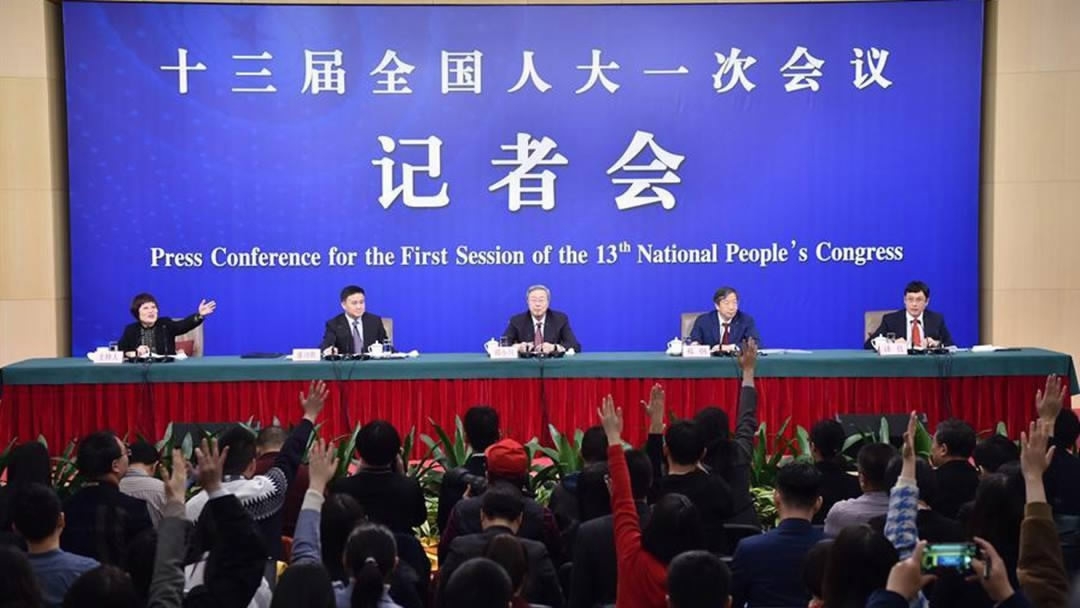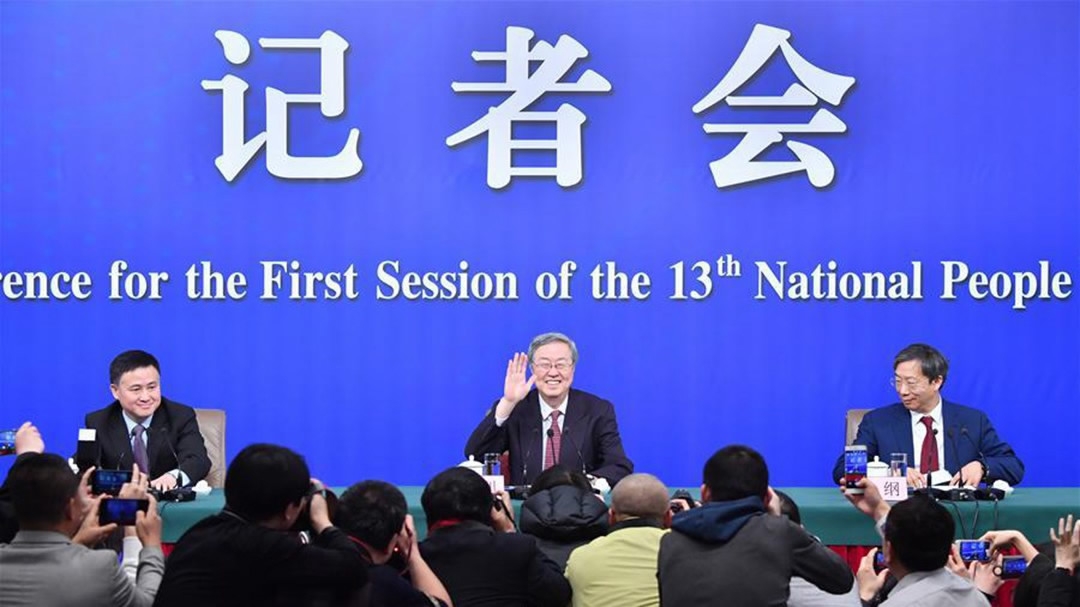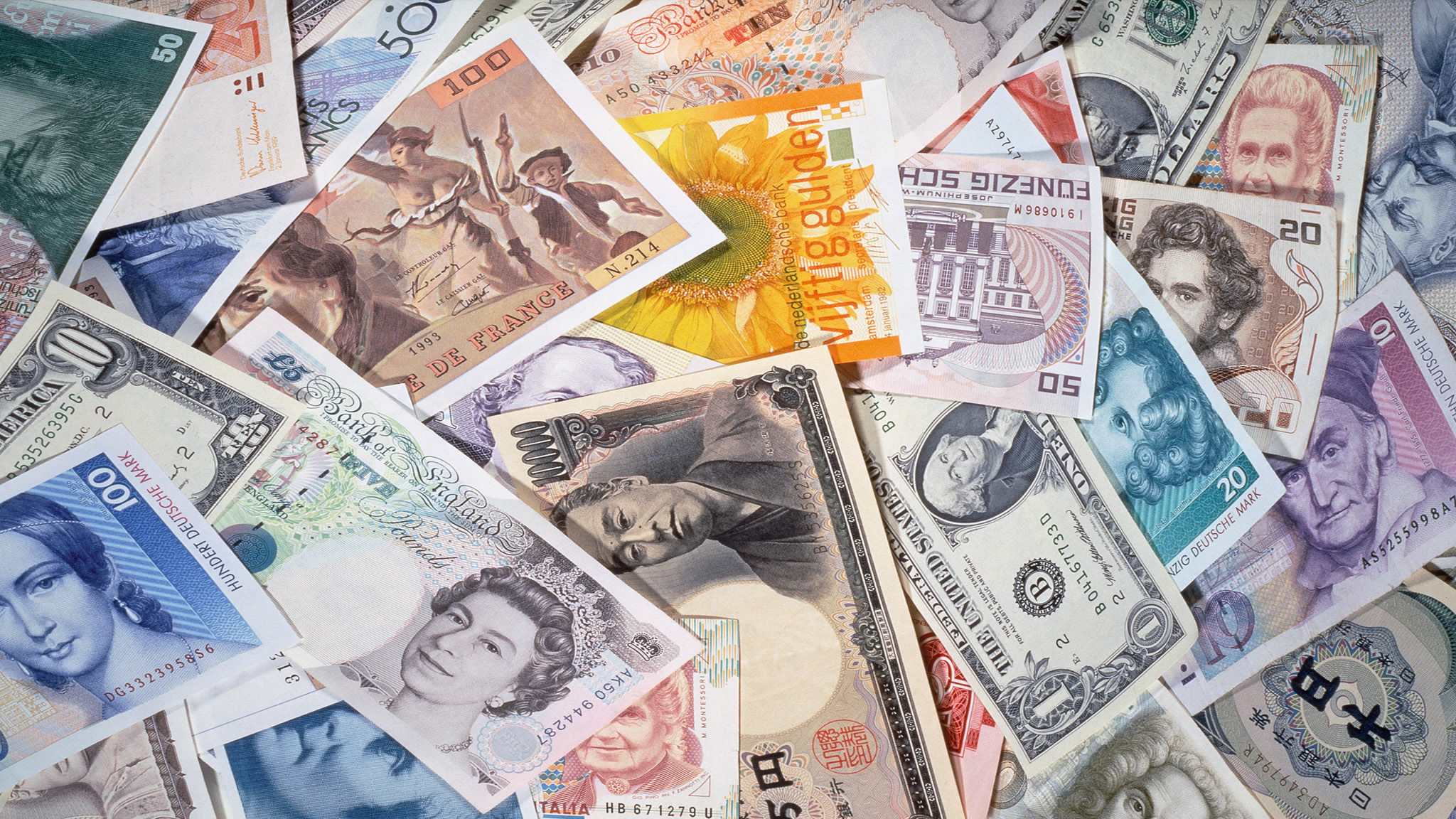
Business
10:02, 09-Mar-2018
Central bank: China's actual interest rate, forex reserves remain stable
By CGTN's Yao Nian

China’s actual interest rate and foreign exchange reserves remain stable, the country’s central bank said on Friday at a press conference about its policies on financial reform and development during the first session of the 13th National People's Congress (NPC) in Beijing.
People's Bank of China (PBOC) Governor Zhou Xiaochuan and Deputy Governors Yi Gang and Pan Gongsheng were present at the press conference.

Zhou Xiaochuan (C), Governor of the People's Bank of China (PBOC), Yi Gang (R), Deputy Governor of the PBOC, and Pan Gongsheng (L), Deputy Governor of the PBOC and head of the State Administration of Foreign Exchange attend a press conference in Beijing, March 9, 2018. /Xinhua Photo
Zhou Xiaochuan (C), Governor of the People's Bank of China (PBOC), Yi Gang (R), Deputy Governor of the PBOC, and Pan Gongsheng (L), Deputy Governor of the PBOC and head of the State Administration of Foreign Exchange attend a press conference in Beijing, March 9, 2018. /Xinhua Photo
Interest rates
“Many major economies have gradually withdrawn their monetary policy from quantitative easing, as the global economy has shown signs of recovery in several regions. That means the past global monetary expansion and low interest rate may gradually come to an end,” said Zhou.
“China is also part of the global economy, and it is steered to a new normal, where its pursuit of growth moves from quantitative approach to high-quality approach,” said Zhou. This change indicates its future growth will reduce reliance on money pumps, according to Zhou.
“The broad money supply in the Chinese economy has already been substantial. In fact, it can be used more efficiently. Once it is used more efficiently, it does not necessarily mean tight,” said the governor.
Although the country’s nominal interest rate rose 0.4 percentage point, its actual rate is stable considering inflation factor, according to Yi.
When answering questions on whether China will follow the US Federal Reserve System's interest rate hike, he said China’s monetary policy is mainly based on the domestic economic and financial situation. “We must take comprehensive considerations,” he said.
“Cross-border capital flows are relatively balanced. In this regard, we will continue to promote the smooth convertibility of capital and meanwhile prevent risks,” said Yi.
Foreign exchange
“China’s foreign exchange market has experienced highly intensive risks and shocks for a period of time. We have adopted counter-cyclical measures in a macro and prudential way to adjust cross-border capital flows,” said Pan.
“In the past few years, we have strengthened the micro-regulation of the foreign exchange market in accordance with China’s current laws and foreign exchange management policies,” he said.
“The regulation focus is mainly on combating fraudulent deceptive transactions, cracking down on underground banks, strengthening declaration of authenticity of cross-border revenue and expenditure, and enhancing compliance supervision of financial institutions,” said Pan.

“The micro-regulation measures will not change despite cycle changes. It will maintain the consistency and stability of standards in different cycles,” Pan emphasized.
Forex reserves had been on the rise for 12 months before February's decline, he said. The slight decline in February was caused by both the rise of the US dollar exchange rate index and the falling bond price index in the international market, he explained.
Economic fundamentals and a stable renminbi will keep China's foreign exchange reserves stable, according to Pan.
BeijingHong KongTokyoIstanbulNew DelhiSingaporeDamascusBaghdadIslamabadSeoulBrusselMoscowCanberraCairoNairobiJohannesburgWashington,D.C.Los AngelesRio de janeiro7km
5km

SITEMAP
Copyright © 2018 CGTN. Beijing ICP prepared NO.16065310-3
Copyright © 2018 CGTN. Beijing ICP prepared NO.16065310-3